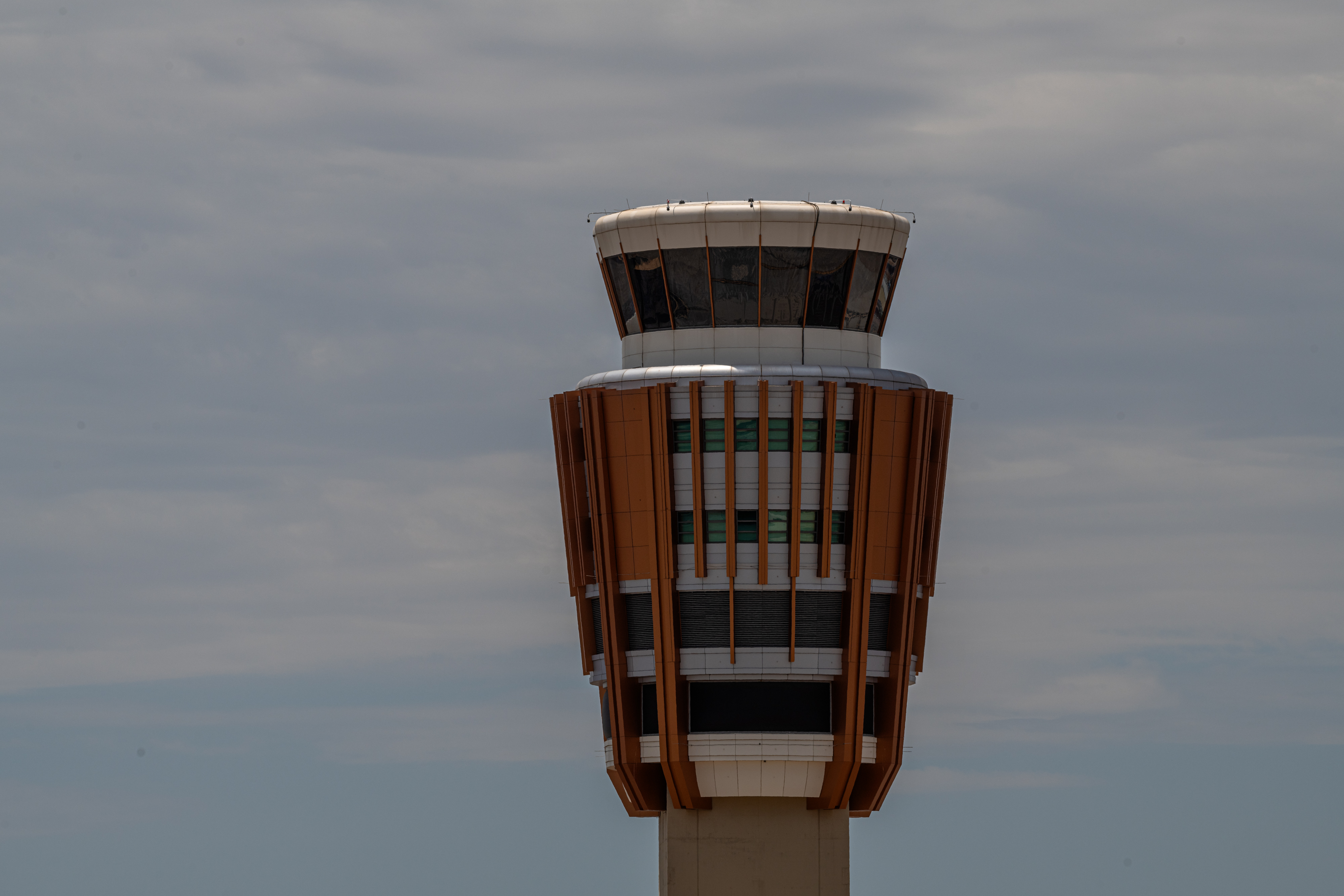What to Know
- Trump reacted to Mueller's appointment by saying it was the "end of his presidency," according to the special counsel's report
- Trump's "efforts to influence the investigation were mostly unsuccessful" in part because staffers "declined to carry out orders"
- Trump's legal team called the results "a total victory for the president," though top Democrats were far less convinced
Public at last, special counsel Robert Mueller's report revealed to a waiting nation Thursday that President Donald Trump tried to seize control of the Russia probe and force Mueller's removal to stop him from investigating potential obstruction of justice by the president. Trump was largely thwarted by those around him.
Mueller laid out multiple episodes in which Trump directed others to influence or curtail the Russia investigation after the special counsel's appointment in May 2017. Those efforts "were mostly unsuccessful, but that is largely because the persons who surrounded the President declined to carry out orders or accede to his requests," Mueller wrote.
The report's bottom line largely tracked the findings revealed in Attorney General William Barr's four-page memo released a month ago — no collusion with Russia, no clear verdict on obstruction — but it added layers of detail about Trump's efforts to thwart the investigation.
Looking ahead, both sides were already using findings to amplify well-rehearsed arguments about Trump's conduct, Republicans casting him as a victim of harassment and Democrats depicting the president as stepping far over the line to derail the investigation.
Trump's legal team called the results "a total victory for the president" while top Democrats House Speaker Nancy Pelosi and Senate Minority Leader Chuck Schumer said in a joint statement that the report undercut the conclusion from Barr that Trump didn't obstruct justice.
U.S. & World
The Justice Department posted a redacted version of the report online Thursday morning, 90 minutes after Attorney General William Barr offered his own final assessment of the findings. Mueller was not present at Barr's briefings but is likely to have his own say on his report in public, as he's been asked to appear before multiple congressional committees to discuss it.
The report's release came as Trump spoke at the White House during an event for wounded soldiers, offering a unique split-screen for TV viewers as reporters began reading out the findings. Trump said he was having a good day, adding, "It was called, 'No collusion, no obstruction."
After nearly two years, the two-volume, 448-page redacted report made for riveting reading. Some takeaways:
- NO COLLUSION: On the question of whether the Trump campaign had colluded with Russia during the 2016 presidential campaign, Mueller wrote, "While the investigation identified numerous links between individuals with ties to the Russian government and individuals associated with the Trump Campaign, the evidence was not sufficient to support criminal charges." Mueller also said there wasn't sufficient evidence to charge any campaign officials with working as an unregistered foreign agent of Russia.
- OBSTRUCTION FOCUS: Mueller evaluated 10 episodes for possible obstruction of justice, including Trump's firing of FBI Director James Comey, the president's directive to subordinates to have Mueller fired and efforts to encourage witnesses not to cooperate. The president's lawyers have said Trump's conduct fell within his constitutional powers, but Mueller's team deemed the episodes deserving of criminal scrutiny. When former national security adviser Michael Flynn agreed to cooperate with prosecutors, Trump's lawyers told Flynn's that this decision would reflect hostility towards the president. Prosecutors believed that message could have been intended to prevent Flynn from testifying truthfully, and therefore could constitute obstruction. But, they added, "we could not determine whether the President was personally involved in or knew about the specific message his counsel delivered to Flynn's counsel."
- TRUMP'S REACTIONS: Mueller reported that Trump had been agitated at the special counsel probe from its earliest days, reacting to Mueller's appointment by saying it was the "end of his presidency." In May 2017, Trump directed McGahn, the White House counsel, to call Deputy Attorney General Rod Rosenstein to have Mueller removed as special counsel. McGahn told prosecutors he was ordered to say "not only that conflicts existed but also that 'Mueller has to go.'" McGahn refused and was prepared to resign over it — he told White House chief of staff Reince Preibus that the President had asked him to "do crazy s***," according to the report. Mueller was never fired.
- TRUMP'S RESPONSE: A 12-page appendix contains Trump's written responses to the special counsel. They included no questions about obstruction of justice, as was part of an agreement with Trump's legal team. Trump told Mueller he had "no recollection" of learning in advance about the much-scrutinized Trump Tower meeting between campaign officials and a Russian lawyer. He also said he had no recollection of knowledge about emails setting up the meeting that promised dirt on Hillary Clinton's campaign. He broadly denied knowing of any foreign government trying to help his campaign, including the Russian government. He said he was aware of some reports that Russian President Vladimir Putin had made "complimentary statements" about him. Trump said that his comment during a 2016 political rally asking Russian hackers to help find emails scrubbed from Clinton's private server was made "in jest and sarcastically" and that he did not recall being told during the campaign of any Russian effort to infiltrate or hack computer systems.
- TRUMP'S ANSWERS: In December 2017, prosecutors advised the president's lawyers that Trump was the subject of an investigation — although Trump repeatedly said since that he was not the subject of an investigation. Mueller's team sought an interview with the president "for more than a year" before the two sides agreed to accept written answers to Russian-related questions. "The President stated on more than 30 occasions that he 'does not recall' or 'remember' or have an 'independent recollection' of information called for by the questions. Other answers were 'incomplete or imprecise.'" And Trump "did not similarly agree to provide written answers to question on obstruction topics or question on events during the transition."
- SUBPOENA THE PRESIDENT? Prosecutors called Trump's answers "inadequate" and considered issuing a subpoena for Trump, but decided against it after weighing the likelihood of a long legal battle. They believed their had enough evidence and information from other sources to draw "relevant factual conclusions on intent and credibility."
- CAMPAIGN-RUSSIA: While the special counsel found no evidence of collusion between the Trump campaign and the Russian effort to undermine the election, it did find connections between the campaign and the Russians. On multiple occasions, members of the Trump campaign liked or promoted social posts originally posted by the Russian Internet Research Agency, which was indicted in the probe, including Donald Trump Jr., Eric Trump, Trump adviser Kellyanne Conway, Tump campaign staffer Brad Parscale and Flynn, the former national security adviser. IRA employees also posed as Americans to communicate with members of the Trump campaign in efforts to coordinate IRA-organized political rallies in the U.S.
- INFO DELETED: Some of the people prosecutors interviewed or investigated, "including some associated with the Trump campaign" had "deleted relevant communications" or used encrypted applications that did not provide for long-term retention of data, prosecutors said. In those cases the office could not corroborate witness statements or fully question witnesses about statements that "appeared inconsistent with other known facts."
- NEW THREADS: The investigation found 14 potential cases of criminal activity that it referred to other parts of the Justice Department, because they were outside the scope of the investigation. Twelve are redacted because they are ongoing, while two have already reached the courts: the cases of former Trump personal attorney Michael Cohen's admitted wire fraud and former Obama White House counsel Gregory Craig's alleged foreign lobbying violation.
The department plans to make a largely unredacted version available to a limited number of members of Congress and their staff at a later date, according to a court filing Wednesday.
Last month, Barr shared his own "principal conclusions" of special counsel Mueller's findings, releasing a four-page summary less than two days after the nearly 400-page report was submitted to him.
Barr said then that Mueller didn't find "members of the Trump Campaign conspired or coordinated with the Russian government in its election interference activities," but also did not exonerate Trump on the issue with obstruction of justice. Barr said there wasn't sufficient evidence to charge Trump with obstruction.
Congress, the White House and the American public anxiously awaited the release of the report itself. Justice Department officials scoured the document to remove grand jury information and details relating to pending investigations, among other materials.
Democrats had said they will not accept any redactions and criticized Barr for quickly releasing his summary and for holding a news conference before the report was released.
Pelosi said Wednesday that Barr had "thrown out his credibility & the DOJ's independence with his single-minded effort to protect" Trump. Schumer said, "The process is poisoned before the report is even released."
Both said Thursday that Mueller should testify in public before Congress "as soon as possible," which Barr said he wouldn't oppose.
Barr has defended how he dealt with the report and said portions must remain hidden to comply with the law.
Trump took Barr's summary as a full exoneration, despite that it explicitly did not exonerate him on obstruction. He tweeted inaccurately on Monday that Mueller and Barr "ruled No Collusion, No Obstruction," and called for an investigation of the people investigating him.
Ahead of the report's release on Thursday, Trump took to Twitter to attack Mueller's investigation, repeating earlier jibes by calling it "The Greatest Political Hoax of all time" and "PRESIDENTIAL HARASSMENT!"



